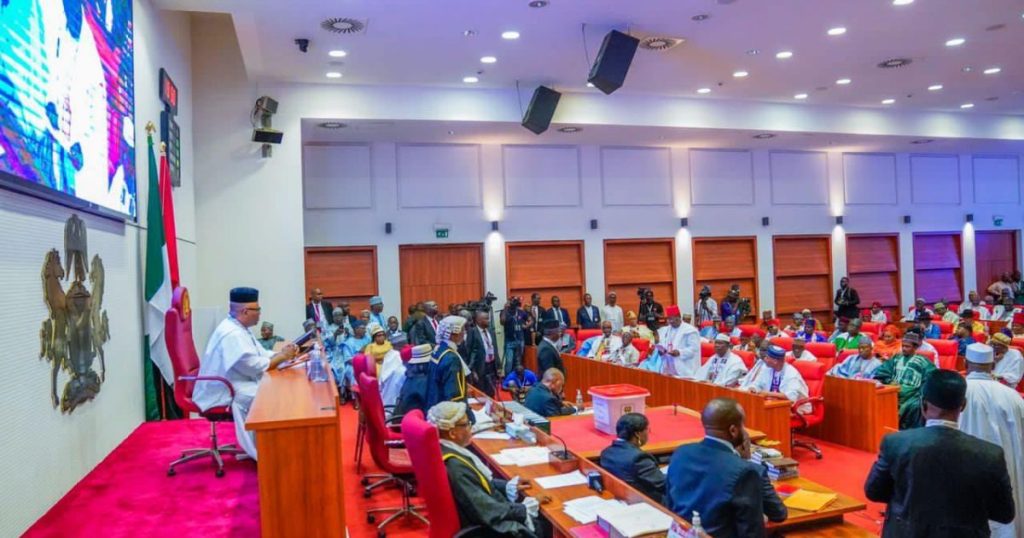Nigeria’s Senate has resolved to convene a two-day national security summit in Abuja to address the escalating insecurity plaguing the nation. The decision comes amidst a surge in killings and violence across several states, including Plateau, Benue, and Zamfara, prompting calls for President Bola Tinubu to prioritize the security crisis. Senator Jimoh Ibrahim, representing Ondo South, initiated the motion for the summit, arguing that the global security landscape, exacerbated by the Russia-Ukraine conflict and tensions between developed and developing nations, has created a ripple effect, impacting food security and hindering the achievement of Sustainable Development Goals. He emphasized the need for Nigeria to strategically navigate international affairs and maximize its national interest in a world grappling with evolving economic and security challenges.
Ibrahim’s proposition highlighted the growing global economic warfare, characterized by disruptive innovations in security, as a critical threat requiring a reassessment of military engagement and funding. He advocated for a national security summit rooted in empirical fact-finding to develop comprehensive solutions. Senator Mohammed Dandutse, representing Katsina South, seconded the motion, pinpointing the lack of intelligence sharing among security agencies as a major obstacle in combating insecurity. He stressed the importance of judicious utilization of allocated security funds. While the majority of senators supported the summit, some, including Senators Enyinnaya Abaribe and Adamu Aliero, expressed skepticism about its effectiveness.
The contrasting viewpoints underscore the complexity of the security challenges and the search for viable solutions. Senators Titus Zam and Senate Minority Leader Abba Moro, however, countered the dissenting voices, advocating for the summit as a necessary step. Following a voice vote, Senate President Godswill Akpabio approved the summit, albeit shortening its duration from the initially proposed three days to two. The summit will bring together representatives from all tiers of government and traditional institutions to collaboratively address the security crisis.
The summit aims to provide a platform for a comprehensive review of Nigeria’s security architecture and policies. The Senate’s decision reflects the growing urgency of the security situation and the need for a concerted national effort to address it. The gathering of diverse stakeholders aims to foster a holistic approach to tackling insecurity. The summit’s success will depend on the commitment of participants to engage in constructive dialogue and formulate actionable strategies.
The Senate’s mandate for a two-day security summit signals a proactive approach to address the escalating violence and instability across Nigeria. The summit’s objective is to generate actionable recommendations for a comprehensive overhaul of the nation’s security apparatus. The involvement of representatives from various levels of government and traditional institutions is intended to ensure a multi-faceted approach to problem-solving. The summit’s success hinges on the participants’ ability to translate deliberations into tangible, implementable solutions.
The Senate expects the summit to yield a revised security framework that addresses the root causes of insecurity and strengthens inter-agency collaboration. The emphasis on empirical fact-finding suggests a data-driven approach to understanding the complexities of the security challenges. The ultimate goal is to create a safer and more secure environment for all Nigerians. The summit’s success will be measured by the tangible impact it has on reducing violence and improving the lives of citizens.














